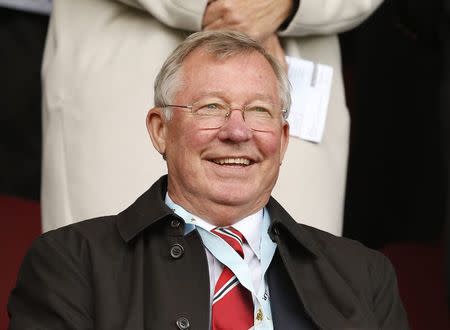Scottish independence would redefine landscape

By Ian Chadband LONDON (Reuters) - Alex Ferguson, a Scotsman who has made his name in England as an icon of British sport, puts it this way: "We don't live in a foreign country; we are just in another part of the family of the UK." Ah, but what happens if that family breaks up? On Sept. 18, Scotland will vote on independence from the United Kingdom and, though sport is a mere sideshow to more weighty political issues dominating the referendum debate, the implications for the sporting landscape on both sides of the Anglo-Scottish border will be immense if the nation decides to go it alone. Whether as the home of golf, the home of the Celtic-Rangers ‘Old Firm’ or the home of great athletes, from Chris Hoy to Andy Murray, and personalities like the former Manchester United manager Ferguson, Scotland has had plenty of reasons to be fiercely proud of its sporting heritage. Yet to a large extent, often to Scots’ chagrin and irritation – British when they win, Scottish when they lose - their long tradition of success has been inextricably entwined with British sporting triumphs, like the 13 medals which their athletes helped to win, either outright or alongside other British Olympians, at London 2012. If the ‘yes’ vote prevails next week – and the current polls suggest that is unlikely – that relationship and the whole culture of Scottish sport will change, with plenty of thorny questions still to be answered that many, believing that a ‘no’ vote will win the day, have not even deigned to address properly. Like whether Scotland’s independent Olympic team would be embarrassed by lack of resources and funding? Or whether their athletes might still choose to compete under a British flag at forthcoming Games. Then there is the possible reshaping of great ‘British’ sporting institutions. On Friday, officials of the British and Irish Lions rugby team, one of the grand brands of world sport, suggested the future name of the team would be up for discussion in October in the event of a win for the 'yes' campaign. The best bet is that the official rebranding before the 2017 tour to New Zealand would then not be as the ‘British, Scottish and Irish Lions’ but simply as ‘The Lions’ – the name everyone has been using for time immemorial anyway. OLDEST RIVALRY Many Scots, brought up on a diet of singular, independent spirits from Jackie Stewart to Murray himself, sound fairly indignant whenever it is suggested that independence would somehow erode their sporting prowess. Alex Salmond, the first minister, has banged the drum about Scotland still being able to make a significant impact on the international sporting stage. It is a long time since their rugby and football teams did that yet it does not feel an unreasonable claim considering the impact of athletes like Hoy, swimmer Michael Jamieson and rower Kath Grainger at the London Olympics. Based on their athletes’ representation in London, any newly-formed Scottish Olympic Association could probably put together a very competitive team of 50-plus to the Rio de Janeiro Olympics in 2016. Yet, because of time pressures following a winning ‘yes’ vote, a Scottish team might have to wait for the 2020 Games before making their debut under their own flag and might have to be satisfied with competing under the colours of the Olympic movement. The thornier question is how many of those athletes eligible to compete under the Scottish Saltire flag would plump instead to maintain the status quo and continue to take advantage of the lavish funding and facilities available to them as Team GB performers. Craig Reedie, the Scot who represents Britain as vice-president of the International Olympic Committee and wants to see the Union maintained, believes many will stick with what they know. He told the Daily Telegraph: "I would’ve thought there would be quite strong incentives for those athletes to remain competing for Team GB." Most Scottish athletes, understandably, are happy to sidestep the political minefield of the independence debate. Murray, the defending British Olympic champion, said last week that he imagined he would be playing for Scotland at the Games in the event of a ‘yes’ win, a fact jumped upon gleefully by the nationalists, yet he has largely tried to keep his thoughts to himself. Once bitten, twice shy; he still remembers the mauling he received in England ever since making a joke about how he would support any team they were playing against in the World Cup. Yet whatever he thinks privately, Murray cannot be sure what would happen if Scotland votes yes. There is, for instance, one scenario which could still see him playing for Britain in the Davis Cup and Scotland in the Olympics. Such are the great unknowns as Scotland goes to the polls. Only one thing, as Murray knows only too well, will never change. Whatever the referendum result, the oldest football rivalry of them all, between Scotland and England, will continue to flourish when the ‘auld’ enemies meet at Celtic Park on Nov. 18. How do we know this? England fans in Basel for a Euro 2016 qualifier against Switzerland on Monday could be heard giving their verdict on the referendum, telling their neighbours where to go with a cheery expletive and the conclusion: "We’re all voting ‘yes’." (Editing by Mark Meadows; mark.meadows@thomsonreuters.com; +44 20 7542 7933; Reuters Messaging:; mark.meadows.reuters.com@reuters.net)

